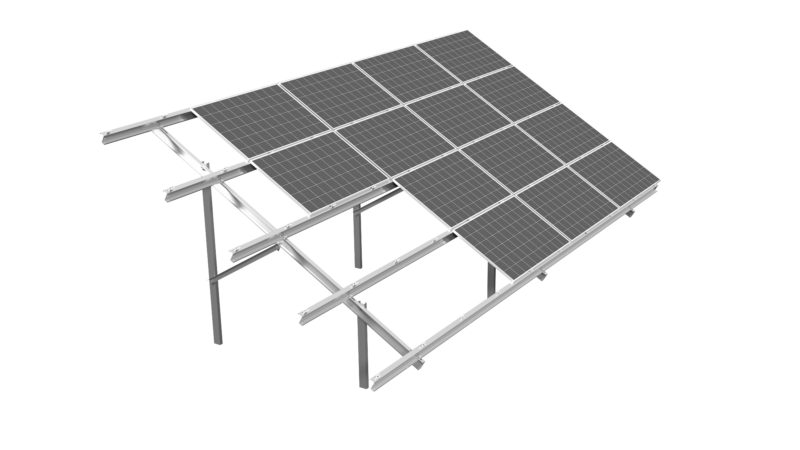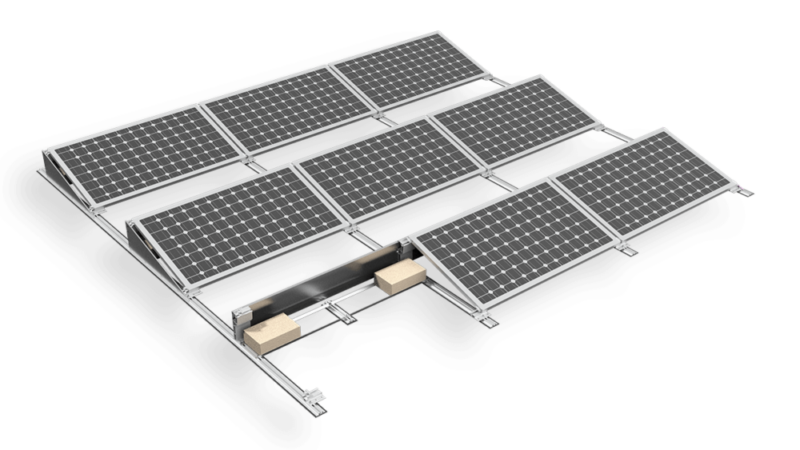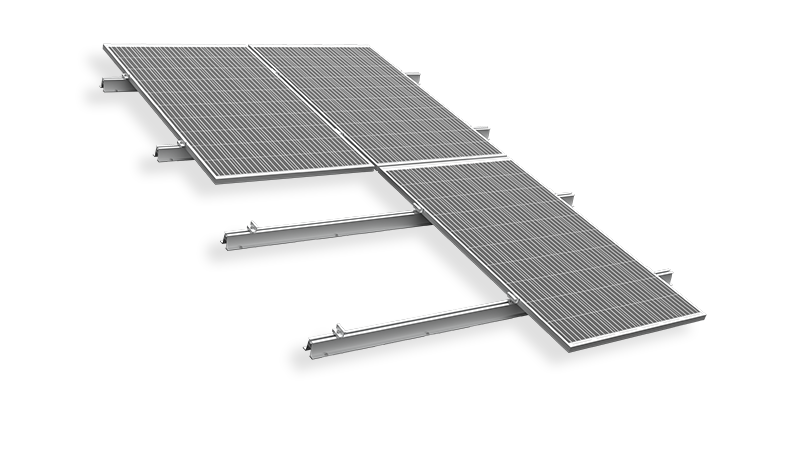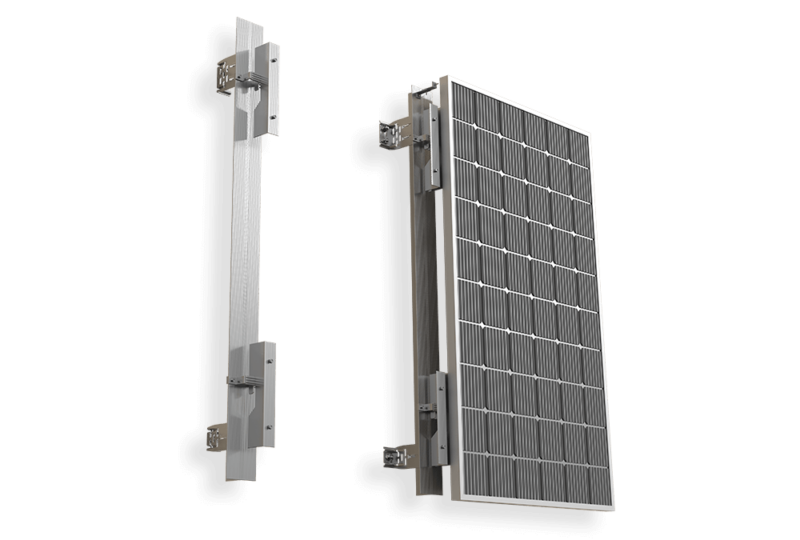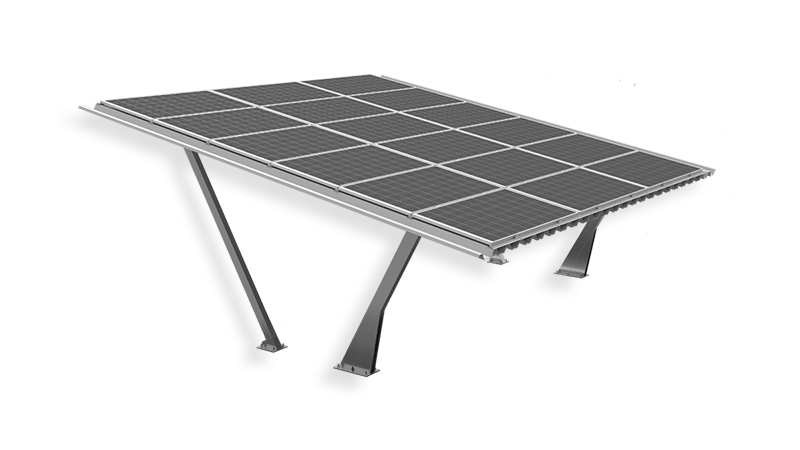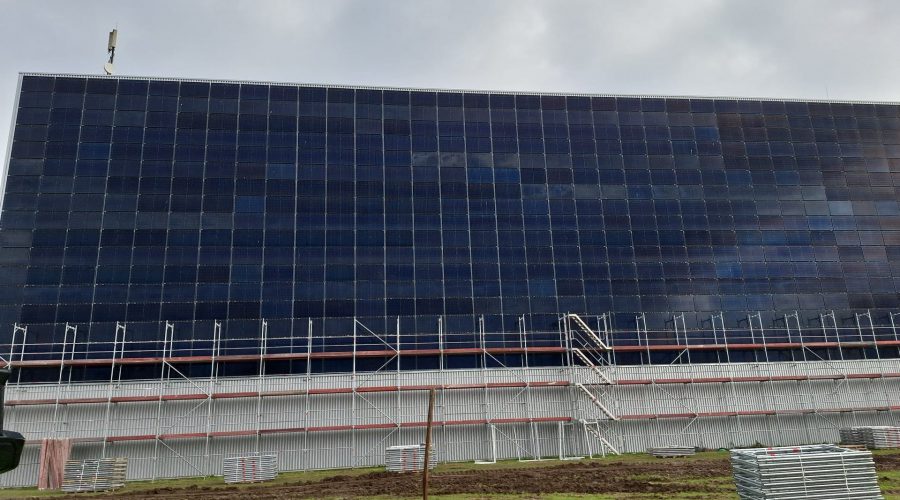
Photovoltaic facades – new architectural trends
PV modules have become a permanent part of not only the urban, but also the rural landscape. The ubiquitous use of photovoltaics is used by entrepreneurs and private individuals who, thanks to the use of renewable energy sources, are able to improve their home budget. The vision of a quick return on investment and contributing to the protection of the natural environment are the main factors influencing this type of purchasing decisions. How does Energy5, as a manufacturer of mountings for photovoltaic modules, contribute to the increase in the popularity of photovoltaics?
Tailor-made PV structures
In addition to the best-selling ground and roof systems, Energy5’s offer also includes photovoltaic facades (BIPV), allowing the installation of PV modules parallel to the building wall surface. This is a solution that works great in office buildings, public buildings, and even production halls. Photovoltaics installed in this way do not take up any land area, and the roof structure does not limit the possibility of expanding the installation as the demand for electricity increases. In response to the changing market needs, we have also developed facade mountings based on set squares, enabling the installation of photovoltaic panels at the optimal angle of inclination.
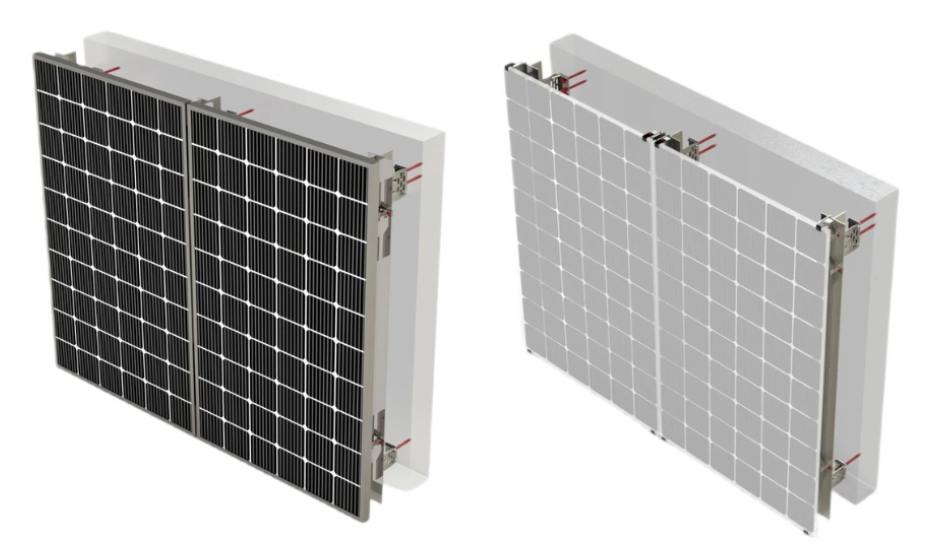
Reliable quality and functionality
Photovoltaics integrated with the wall allows companies to fully use the potential of sunlight to the benefit of their business. Depending on the number of PV modules, panels installed on the facade of an office building or production hall are able to cover most – if not all – of a specific institution’s electricity demand. The system was designed to improve the thermal insulation of the building, ensure better air circulation under the modules and improve moisture removal. This effect was achieved by using a 20 mm gap between the insulating material and the surface cladding. Additional protection of the structure is provided by steel consoles with anti-corrosion metallic coating and the high quality is confirmed by tests carried out at the Fire Research Department of the Building Research Institute.
Highlight the nature of your business
The use of renewable energy sources by companies is often associated with their high commitment to sustainable development. Contact our technical and commercial advisors and find out which photovoltaic module installation systems will be best for you!


